Introduction
Hyperlite Mountain Gear Pods (MSRP $50, ~1.3 oz / 37 g) are Dyneema Composite Fabric (DCF) stuff sacks designed to fit with maximum efficiency inside backpacks. To this end, they are flat at the back and rounded at the front. They open clamshell style with a water-resistant zipper. Hyperlite Mountain Gear sells Pods in four different sizes – 2400/3400 small and large (420 cu in and 610 cu in respectively) and 4400 small and large (520 cu in and 750 cu in respectively). These sizes (and names) are designed to interface with Hyperlite Mountain Gear packs, but Pods will work in any pack.
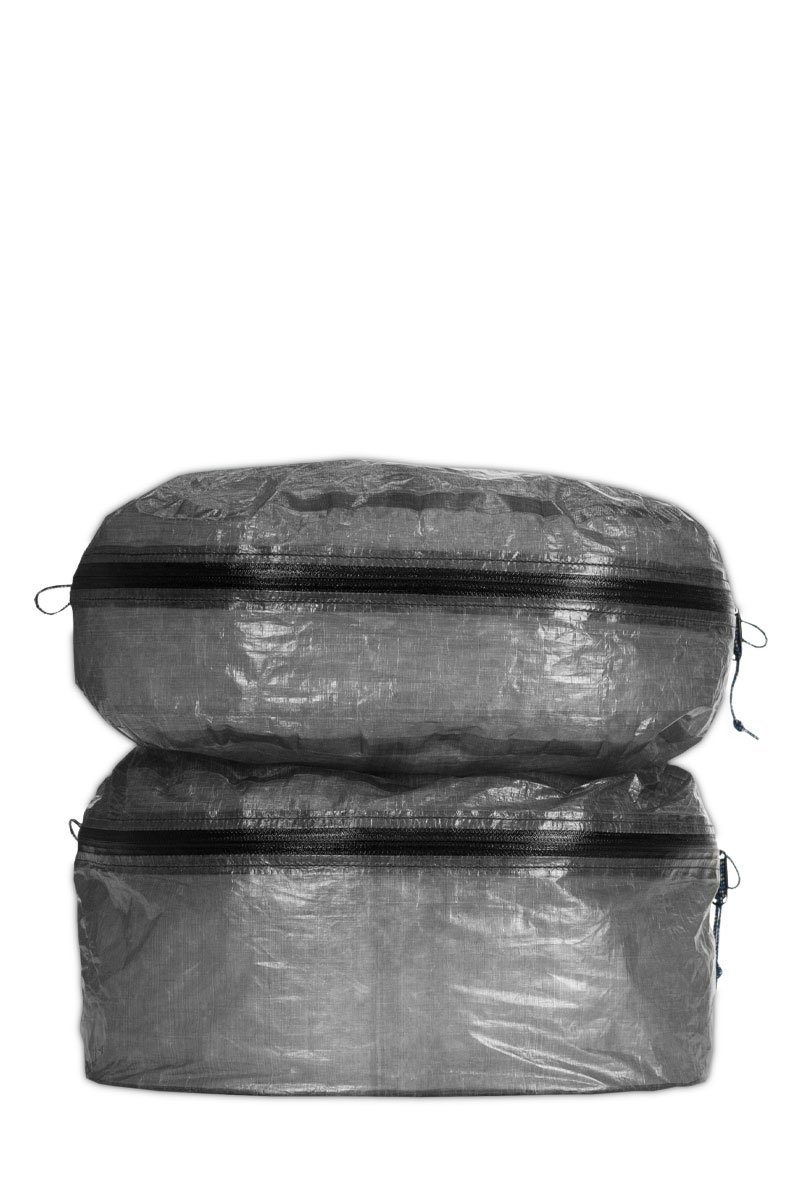
About This Review
This Limited Review is based on my experience with the Hyperlite Mountain Gear Pods on multi-day backpacking trips in 2019, 2020, and 2021. I’ve spent well over a hundred days backpacking with Hyperlite Mountain Gear Pods. I easily have enough experience with this piece of gear to write a Performance Review, but even the nicest stuff sack probably doesn’t need a 5,000-word review.
Read about the differences between Performance and Limited reviews here.
Features and Specifications
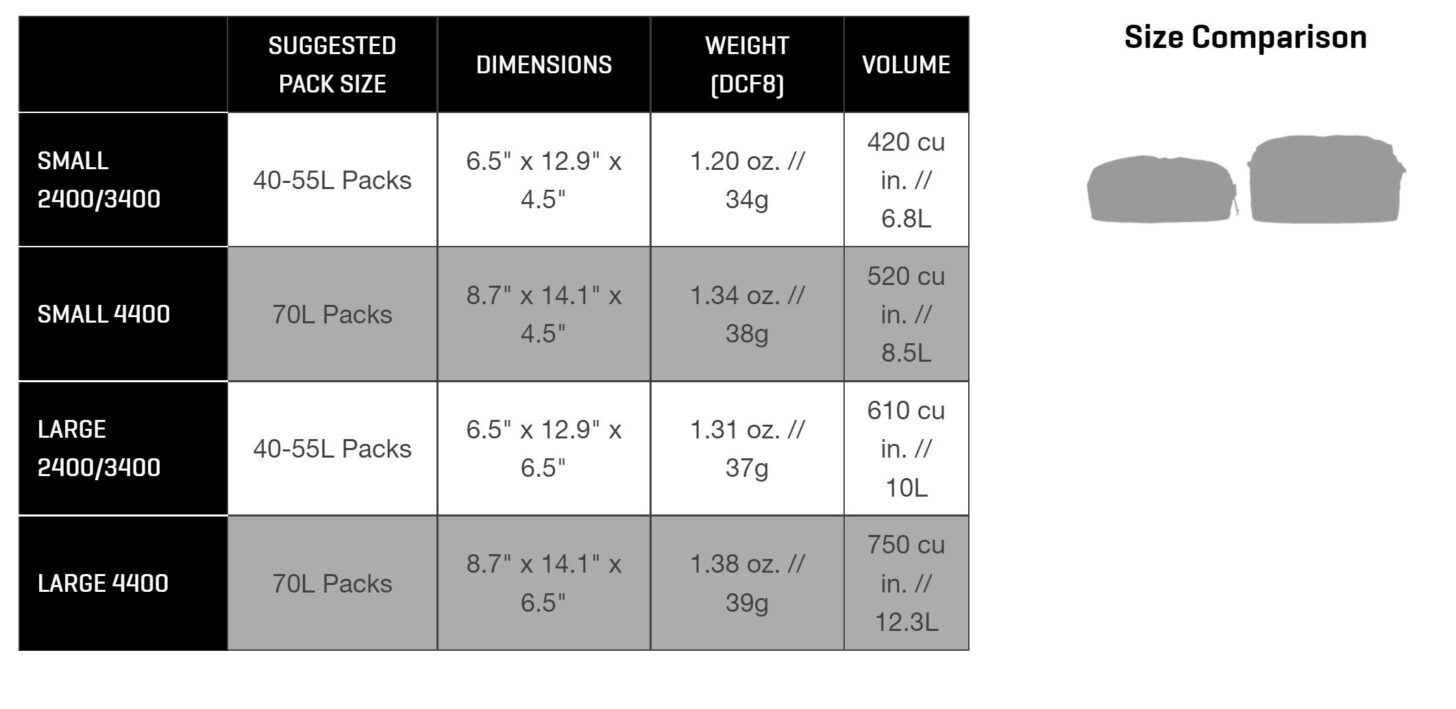
- four sizes designed to interface with low-and-medium-volume packs (55 L and under) and high-volume packs (70 L and under)
- material: Dyneema Composite Fabric 1.3 oz/yd2 (43 g/m2)
- fully-taped seems
- waterproof zipper
Description of Field Experience
Hyperlite Mountain Gear Pods have joined me on every backpacking trip I’ve taken in the last three years. That adds up to over 100 days and nights in the field across all four seasons in the Appalachians, Rockies, and the Sierra Nevada. I also use them on day hikes.
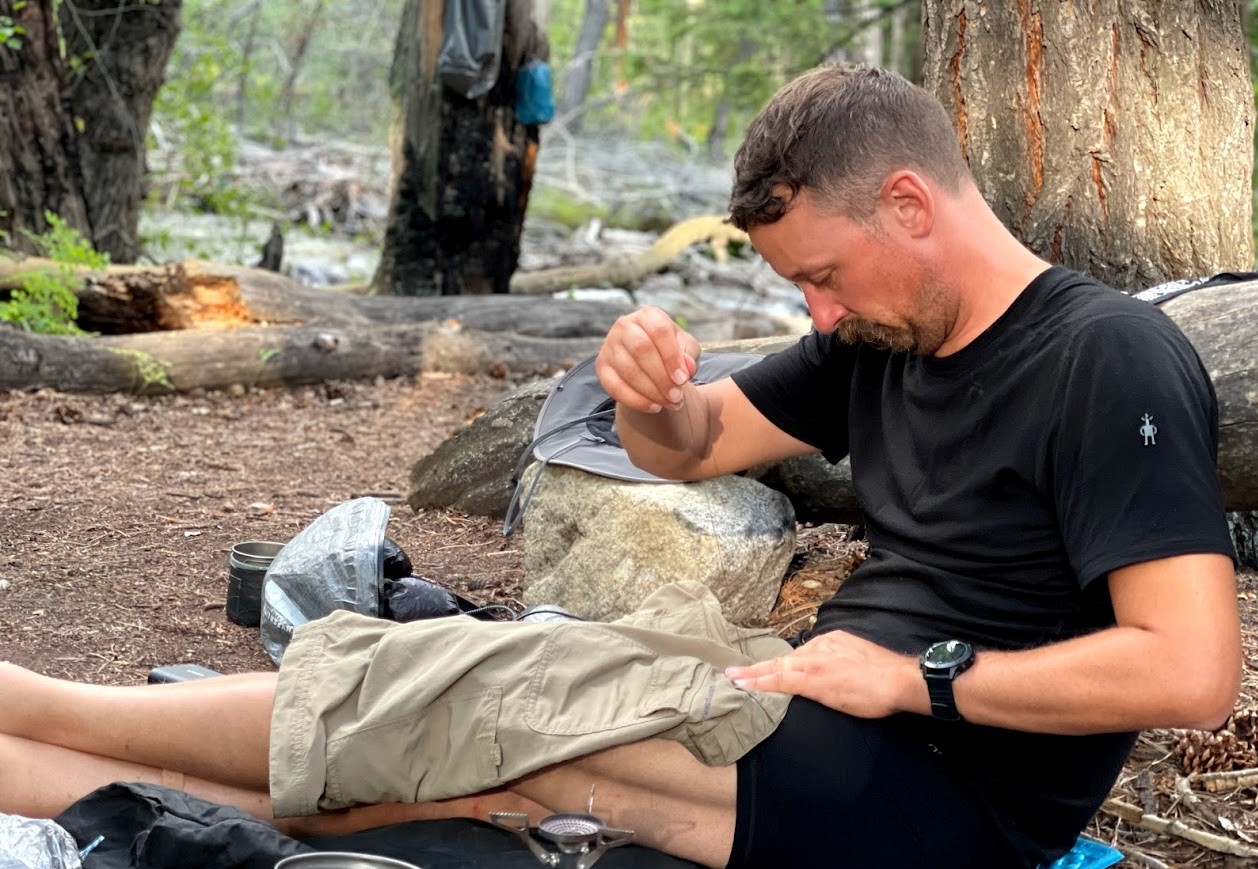
Performance Analysis
I reviewed Hyperlite Mountain Gear Pods based on the following metrics:
- utility
- waterproofness
- durability
Utility
In our interview with him for the Backpacking Light Podcast, gear designer Livio Melo of allmansright pointed to the company’s stake sack (instead of its flagship backpack) as the thing he felt best represented peak design in his gear lineup. To paraphrase Livio, he made this choice because a stake sack is a simple object that is handled every day while backpacking. But stake sacks manage to retain their status as annoying, poorly designed afterthoughts in a lot of instances. Livio designs stake sacks from the ground up, with the user experience in mind – and it makes all the difference in the world.
So too (apparently) with the Hyperlite Mountain Gear Pods. Too often stuff sacks are inelegantly made, even when they are made of premium materials like Dyneema Composite Fabric. Generic stuff sacks are tubes of material that cinch or roll down. Once stacked on top of one another inside a pack, they create pockets of weirdly shaped, borderline unusable space. In a frameless pack, generic stuff sacks will distort the shape of the pack and lead to discomfort if not packed extremely carefully.
Hyperlite Mountain Gear solves all these problems by creating a stuff sack designed to mirror the cross-section of a backpack. Pods are flat across the back and curved in the front. The effect becomes noticeable when multiple Pods are stacked atop one another. There is little wasted space.

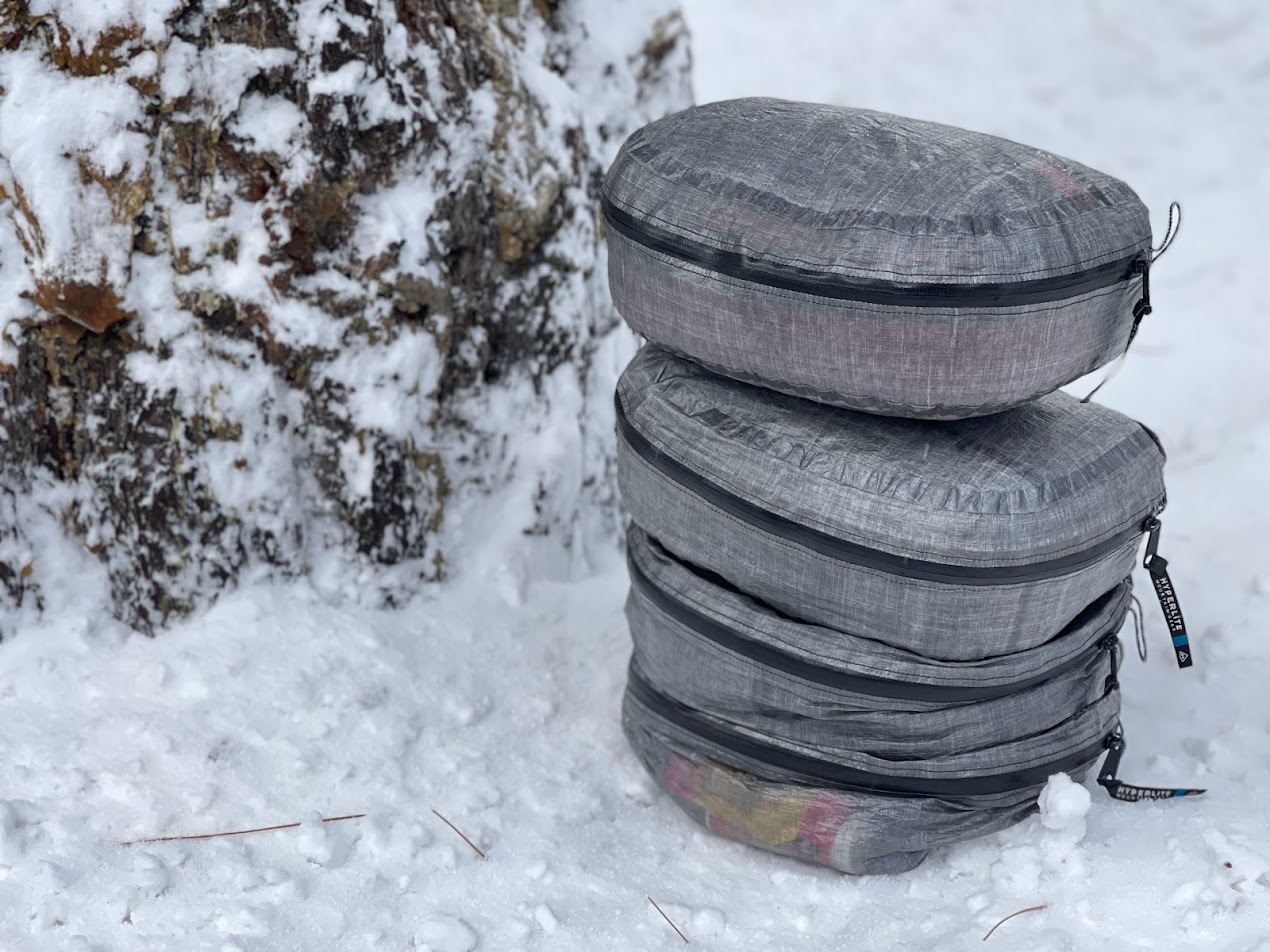
The clamshell zipper opening makes it easy to find items without having to dig around in a tube-style sack or, worse, having to dump everything out to get at an item that has wormed its way down to the bottom.
It’s an amazingly effective idea, realized in signature Hyperlite Mountain Gear fashion – which is to say with a clean, no-frills design.
Weatherproofness
Hyperlite Mountain Gear Pods sport a waterproof zipper, Dyneema Composite Fabric construction, and taped seams. I’ve used Pods in conjunction with Xpac and DCF packs with no pack liner on some extremely wet trips (seven straight days of rain) and never had wet gear at the end of the day. I’d trust Pods to hold up against a quick dunk while packrafting or fording.
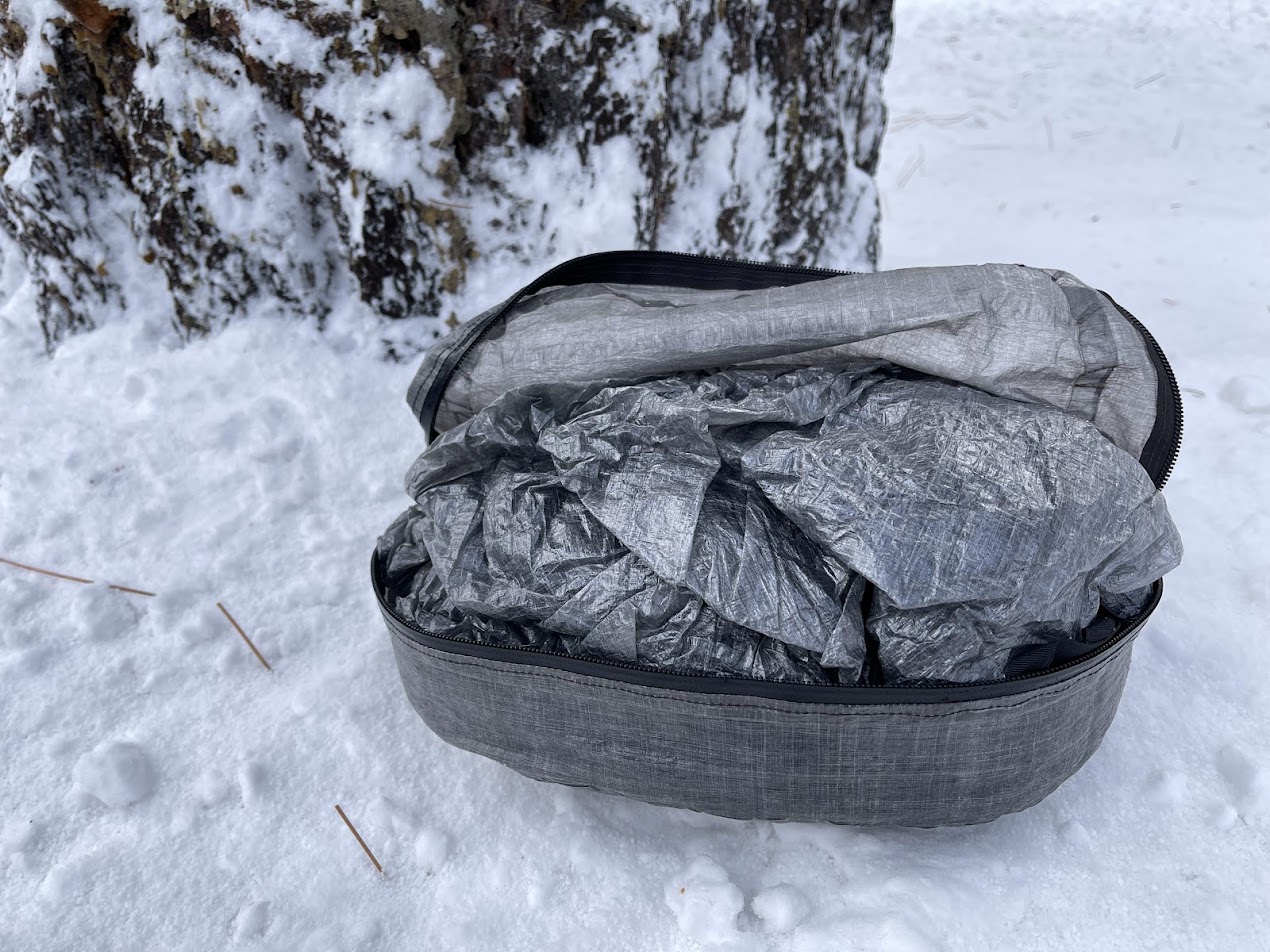
If I was using a woven nylon pack that wasn’t inherently waterproof, I’d still forgo a liner on trips where I could reasonably expect only a few showers of short duration. But my inherent “wet insulation paranoia” often leads me to create redundant systems. So if I was using Pods in a rainy climate with a non-waterproof pack, I’d include a pack liner or pack cover in my system just to be extra safe.
Durability
I’ve been using the same set of Hyperlite Mountain Gear Pods for three, going on four years. The 1.3 oz/yd2 (43 g/m2) Dyneema Composite Fabric material chosen for the Pods is holding up well to generic backpacking use. I have one Pod that developed an abrasion-related tear at some point (I’m not sure when). But of course, the beauty of DCF is that it is so easily reparable with DCF tape, nylon tape, or duct tape.
Member Exclusive
A Premium or Unlimited Membership* is required to view the rest of this article.
* A Basic Membership is required to view Member Q&A events

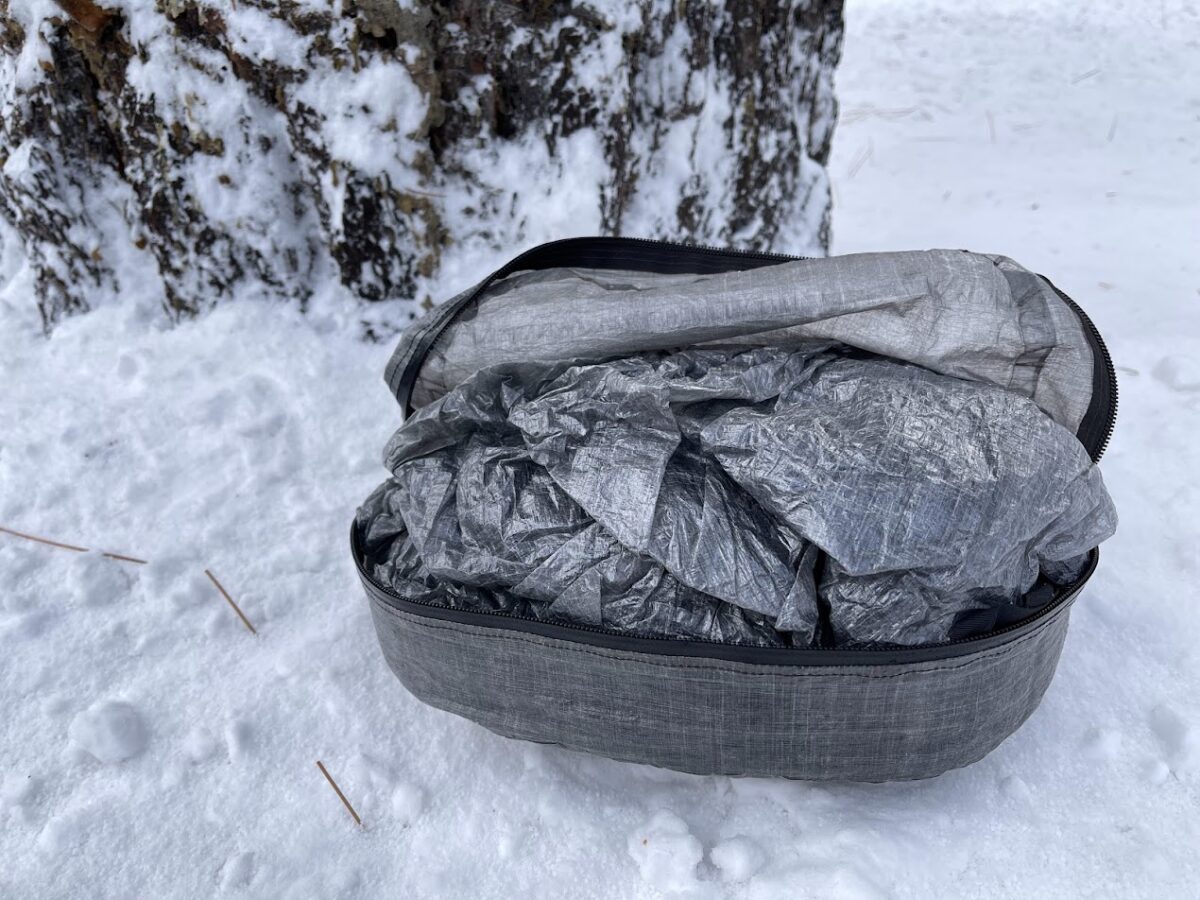


Home › Forums › Hyperlight Mountain Gear Pod Review